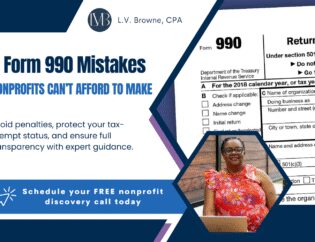
If you’re planning to buy a new car in the next few years, a major tax break may be waiting for you. Thanks to a new provision in the One Big Beautiful Bill Act, qualifying taxpayers can now deduct interest on loans used to purchase personal vehicles—something that hasn’t been allowed in decades.
This new deduction applies beginning in 2025 and allows qualifying taxpayers to deduct up to $10,000 of interest annually through 2028. Here’s what you need to know.
Who Qualifies for the New Deduction?
The new deduction applies to individuals who meet both income and vehicle use requirements.
- Income limits: The deduction begins to phase out at a modified adjusted gross income (MAGI) of $100,000 for single filers and $200,000 for joint filers.
- No itemizing required: Unlike many deductions, this one is available to both itemizers and non-itemizers.
- Use must be personal: The vehicle must be used for personal—not business or commercial—purposes.
To claim the deduction, taxpayers will also need to report the Vehicle Identification Number (VIN) on their tax return.
What Types of Vehicles Qualify?
To be eligible, the vehicle must meet specific criteria:
- New purchase only: The deduction applies only to new vehicles (not used) with original use starting with the taxpayer.
- Final assembly in the U.S.: The vehicle must be assembled in the United States.
- Vehicle type: Qualifying vehicles include cars, minivans, vans, SUVs, pickup trucks, and motorcycles, as long as the gross vehicle weight rating is under 14,000 pounds.
- Loan requirements: The interest must be paid on a loan that is secured by a lien on the vehicle and originated after December 31, 2024.
If you refinance a qualifying loan later, the interest paid on the refinanced loan is generally still deductible.
How Much Can You Deduct?
The maximum annual deduction is $10,000 for interest paid on a qualifying vehicle loan. This means you can reduce your taxable income by up to $10,000, which may lower your tax liability depending on your situation.
Keep in mind:
- Lease payments do not qualify.
- If your MAGI exceeds the income limits, your deduction will be gradually reduced.
What Do Lenders Need to Do?
Lenders will have new reporting responsibilities starting in 2025. They’ll be required to:
- File information returns with the IRS.
- Furnish annual statements to borrowers showing the total interest paid.
The IRS plans to provide transition relief for lenders in 2025 as they adjust to these new requirements.
Why This Matters
For decades, interest on personal auto loans hasn’t been deductible. This new tax break may offer real savings for households planning to buy a new vehicle in the coming years—but only if they meet all the conditions.
Whether you’re preparing to finance a car or trying to plan your 2025 tax strategy, now is the time to start thinking ahead. Proper planning will help you maximize this opportunity and avoid surprises down the road.
Let’s Make Sure You Maximize This Deduction
Buying a new vehicle soon? Want to know how this new law fits into your broader tax picture? Our team is here to help you navigate eligibility, track your loan interest, and plan your finances strategically.
Schedule your free consultation with us and make sure you’re ready to take full advantage of this deduction when it counts.










